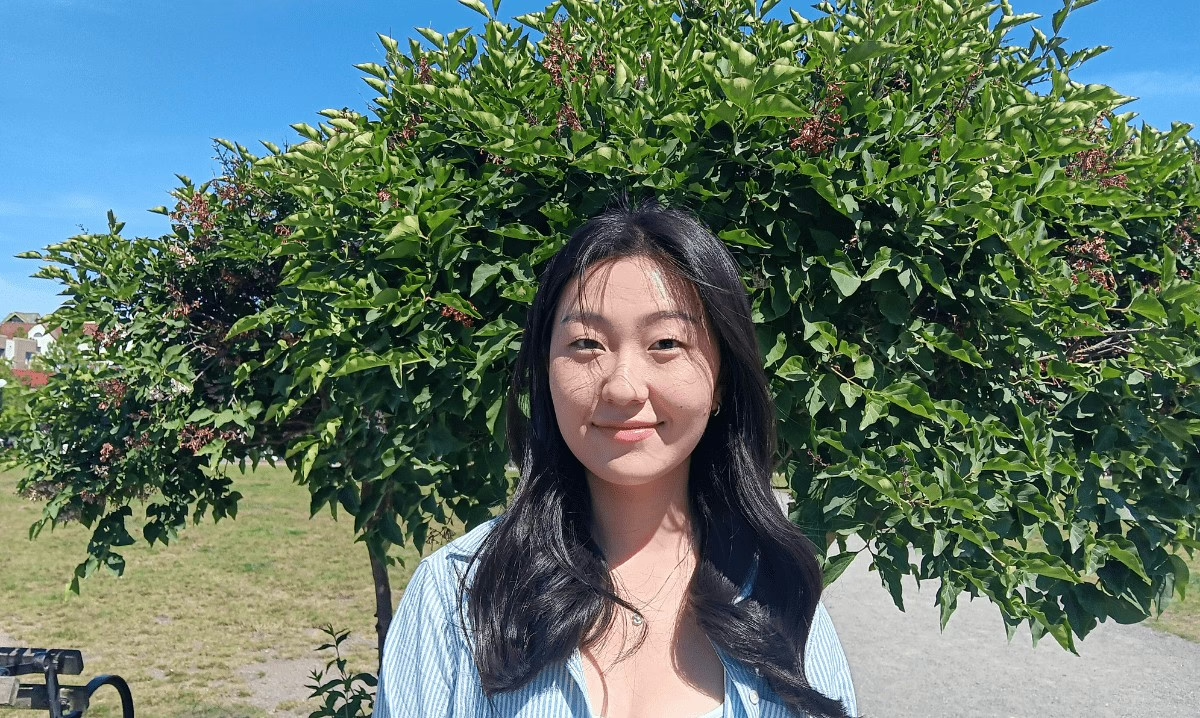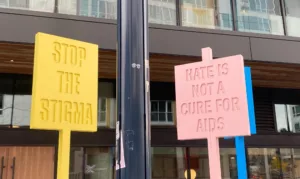“Self-belief positively affects my performance and my confidence.”
Sofia Jun, an 18-year-old student from South Korea, exemplifies what it means to succeed academically while navigating the quiet, often invisible battle of mental health. As the youngest in her family and the vice president of public affairs for Phi Theta Kappa (PTK), Sofia carries an impressive résumé. But behind her achievements is a story defined by vulnerability, resilience, and the courage to seek help. She maintains a perfect 4.0 GPA and a full schedule, but what truly sets her apart is the story she carries behind those accomplishments.
Jun first experienced depression in middle school during the COVID era. “It was quarantine. I did not see my friends. Being an extrovert, I get my energy from people,” she said. “I started finding myself crying all night and sharing it with my friends. It was 2020, and I was 14 years old.”
At the time, she didn’t really tell her parents what she was going through. Mental health wasn’t openly discussed in her environment. “There was a stigma to going to the clinic or getting therapy and also telling my parents that I am struggling,” she explained. Still, she’s grateful for the way her family responded. “I am very fortunate that I have parents and family members who support me and try their best to learn about the symptoms and disorders.” Even with their support, the pressure didn’t ease. Jun lived in a culture where “you always have to look good, be productive, and look pretty.” But in 2023, it all came to a head.
She was attending a competitive high school far from home. “My schedule would start at 6 a.m. and end at 10 p.m. I was not getting much sleep, I was staying far away from home because the commute was long. All these affected my academics, sleep, and emotions.”
She describes a low point: “I would call my mom every break of every period, crying, asking if I am doing okay. And I was asking for recognition of illness, and my mom would say it will be okay.” Despite everything, Jun was also preparing for her GED and used that challenging time to take a bold step forward. “I knew I was going to graduate a quarter ahead of my peers,” she said. What initially felt like a setback became an opportunity. The academic break, though born out of necessity, turned into a lucky break, one that gave her space to prioritize her health and fast-track her education in a way that worked better for her.
She eventually opened up to her mom completely. “I told my mom I was not able to learn with my condition, and I will not be able to do well. And I will feel guilty not learning anything after all the sacrifices you made for me.” Her mother responded positively and fully supported her decision to take time off.
During that break, Jun focused on healing. She went to weekly doctor’s appointments and developed tools to help manage her mental health. Now, even though she feels more stable, she still relies on those tools daily. “For now, I am not really struggling with depression, but I am relying on different tools to manage my emotions, like meditation, journaling, exercising, and checking in.”
One of her favorite tools is the Headspace app. “They have a student discount of $0.99 per month. They have great features that really help, like focus music, white noise, and some podcasts you can listen to.”
Jun is very intentional about how she studies and prepares. “I try my best to be present when taking class, as performance also affects my mental health as a perfectionist and an ambitious person who would like to succeed.” She uses a planner and takes detailed notes. “When it comes to reviewing my exams, I check if there is a test or practice exam, and I would master it until I get no problems wrong. So I use resources.” And then there’s sleep. “I love sleeping,” she laughed. “I sleep on average 7 to 8 hours. Sometimes I pull an all-nighter, and sometimes I sleep 10 to 12 hours.”
When she’s having a tough mental health day, she leans into self-compassion. “When I feel down, I try my best to open some space for myself. If I am thinking something negative or I did something wrong, I say it’s okay and it will be okay and it actually is.” She knows some people think optimism is fake, but she disagrees: “It actually is helping and it actually is okay.”
Counseling has played a major role in her healing. “I also have counseling sessions at the college, and I FaceTime with my mom a lot.” That year off didn’t just give her a break; it deepened her relationships. “From the gap year, I developed a really strong relationship with my mom.”
Jun believes strongly in the power of believing in yourself. “Self-belief is important, and I believe that I have a lot of potential because I see myself achieving things, and I see my parents completing and achieving things as well.” She even credits part of her confidence to genetics. “My parents’ DNA is also in me.”
She also finds comfort in the little things when things don’t go as planned. “When I’m having a bad week or bad day, I must end that day with something that I loved. I would end up going to the gym, or eating my favorite dessert, or watching a movie, or lighting an incense.” Her friendships are also a big part of her life. “They should be emotionally available and be able to be honest and to reveal to themselves not a transactional relationship but a mutual advice for each other and support for each other.”
As for medication, she’s open about that, too. “My doctor prescribed me with serotonins and not antidepressants. It works like antidepressants but with fewer side effects.”
When asked what advice she’d give to other students dealing with mental health challenges, Jun doesn’t hesitate. “First of all, I would just like to give you a hug and ask how you are. I would also recommend that you visit the counseling office and talk about yourself.”
Jun proves that you can be vulnerable and strong at the same time. That success isn’t about hiding your struggles, but about facing them, adapting, and taking care of yourself. Her story is a powerful reminder that it’s OK to slow down, to ask for help, and to believe deeply that you’re going to be OK.

Mbaire is an international student at Seattle Central College, majoring in economics. Whether she’s traveling, diving into a good book, or catching up on her favorite shows, Mbaire loves exploring different perspectives. As a writer for the Seattle Collegian, she enjoys interviewing people and uncovering the stories that connect us, hoping to offer her readers thoughtful insights and spark meaningful conversations.







Be First to Comment